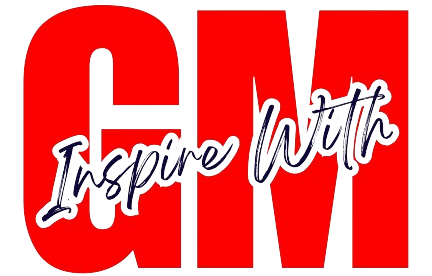In the complex world of Recruitment, separating the details of candidate behavior is an artwork. This blog publishes delves into the psychology of interviewing, exploring the tones of understanding candidate conduct and interpreting the unstated cues that shape hiring choices.
Thoughtful Spirit: The Role of Psychology in Interviews
While a CV provides a sight right into a candidate’s skilled trip, the interview is in which the human element comes to the forefront. The mindset of questioning goes beyond qualifications, tapping into the realm of moods, information designs, and the underlying motivations that influence candidate behavior.
The Control of First Impressions:
The saying, “You by no means get a 2nd threat to make a primary impact,” holds extensive heaviness inside the context of task interviews. Psychology teaches us that preliminary impressions are formed rapidly, regularly in the first few seconds of assembly someone. Recruiters ought to be attuned to non-verbal cues, body language, and the overall demeanor of candidates to benefit insights into their self assurance, enthusiasm, and professionalism.
The Influence of Body Language:
Body language is a effective communicator, often conveying more than phrases. Candidates who keep eye touch, display open body language, and showcase gestures that align with their phrases are probably to be perceived positively. Conversely, signs of pain, fidgeting, or heading off eye touch may also indicate anxiety or uncertainty.
Directing Spoken and Non-Spoken Discrepancies:
The interaction between spoken and non-spoken cues is vital in interpreting candidate conduct. Discrepancies among what a candidate says and their frame language may be revealing. For example, a candidate expressing enthusiasm verbally even as displaying closed-off body language may additionally indicate a misalignment among their phrases and genuine feelings. Recruiters need to skillfully navigate those discrepancies to find proper responses.
The Psychology of Questioning: Crafting Inquiries for Insight
The art of powerful wondering lies in going beyond surface-level responses, delving into the candidate’s mind-set, motivations, and problem-solving methods. Crafted questions based on mental principles can unveil a deeper expertise of the candidate’s thought approaches.
Interactive Questioning Techniques:
Behavioral interview questions are designed to elicit examples of beyond behavior, offering insights into how candidates have navigated challenges within the beyond. By probing into unique situations, recruiters can gauge a candidate’s hassle-solving capabilities, interpersonal abilities, and their technique to overcoming limitations. This method is rooted inside the perception that beyond conduct is a robust predictor of destiny overall performance.
Situational Decision Tests (SDTs):
SJTs gift hypothetical scenarios that candidates may come upon inside the workplace. Their responses provide a window into their choice-making tactics, moral concerns, and how they prioritize competing demands. SJTs are grounded inside the understanding that assessing how applicants approach theoretical situations can monitor their realistic problem-fixing skills.
Cultural Fit and Value Alignment:
Assessing cultural healthy and value alignment includes exploring a candidate’s attitudes, beliefs, and alignment with the organization’s values. Psychological studies emphasize the significance of shared values in fostering effective work surroundings. Questions that probe into a candidate’s work preferences, collaboration style, and perspectives on organizational lifestyle contribute to gauging cultural healthy.
Overcoming Interview Challenges: Navigating Psychological Barriers
Interviews aren’t proof against mental obstacles, together with biases, candidate tension, and external elements that could impact critiques. Navigating these challenges is vital for making sure fair, independent, and comprehensive assessments.
Mitigating Unconscious Bias:
Unconscious bias can inadvertently affect hiring decisions. Recruiters need to go through schooling to understand and mitigate bias in their reviews. Structured interview techniques, blind resume opinions, and numerous hiring panels are techniques grounded in psychological principles to counteract bias and promote equity.
Alleviating Candidate Anxiety:
Interviews may be anxiety-inducing for applicants, impacting their overall performance. Creating a welcoming environment, supplying clean communication about the interview layout, and incorporating ice-breaker questions assist alleviate tension. Recruiters need to be attuned to signs of anxiousness and appoint empathy to create a conducive ecosystem for candidates to showcase their proper capabilities.
Assessing Resilience and Adaptability:
The capability to navigate tough conditions and adapt to alternate is a precious trait. Incorporating questions that examine a candidate’s resilience and flexibility offers insights into their mental readiness for the dynamic nature of the place of business. Questions may additionally focus on past studies of overcoming setbacks or adapting to evolving situations.
Measuring Success and Continuous Improvement:
To master the psychology of interviewing, businesses need to establish metrics for success, constantly monitor interview overall performance, and optimize techniques primarily based on evolving developments and candidate preferences.
Interview Feedback Mechanisms:
Actively in search of comments from each recruiters and applicants contributes to refining interview strategies. Understanding how candidates understand the interview manner, the clarity of questions, and the general enjoy provides precious insights. Feedback mechanisms ought to be established and encompass qualitative and quantitative data.
Iterative Refinement:
The psychology of interviewing is dynamic, and strategies that paintings nowadays can also need modifications day after today. Establishing a lifestyle of iterative refinement allows companies to constantly compare and decorate their interview techniques based totally on evolving enterprise trends, feedback, and converting organizational desires.
Evaluating Hiring Outcomes:
Key performance indicators (KPIs) have to be mounted to degree the effectiveness of the interview manner. Metrics consisting of time-to-fill, candidate retention rates, and the alignment of hires with organizational dreams offer tangible benchmarks for achievement. Evaluating hiring results ensures that the interview system contributes undoubtedly to universal organizational objectives.
Conclusion: Mastering the Art of Psychological Interviews
In conclusion, decoding minds within the realm of recruitment is an difficult art that blends psychology, strategic questioning, and a nuanced knowledge of human conduct. By acknowledging the impact of first impressions, crafting insightful questions, addressing interview demanding situations, and continuously refining techniques, companies can master the art of mental interviews. As the personnel panorama evolves, the capability to decode minds turns into not most effective a skill but a strategic imperative for agencies aiming to draw, preserve, and nurture pinnacle-tier expertise.

















